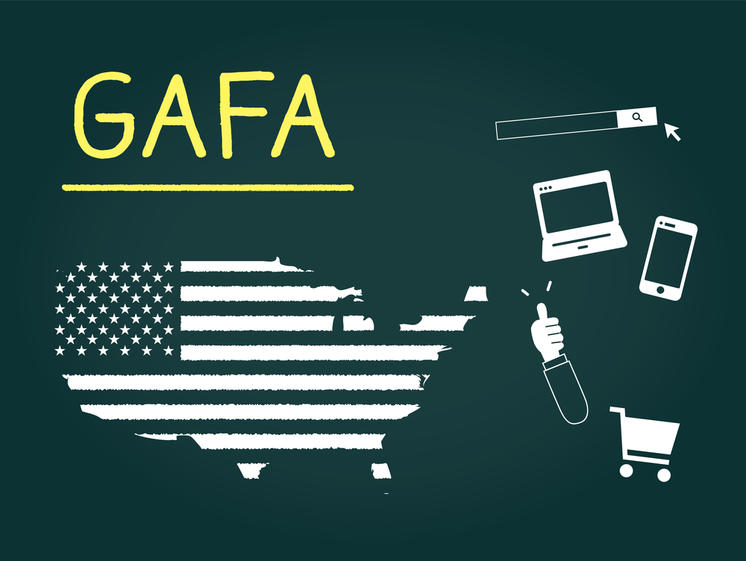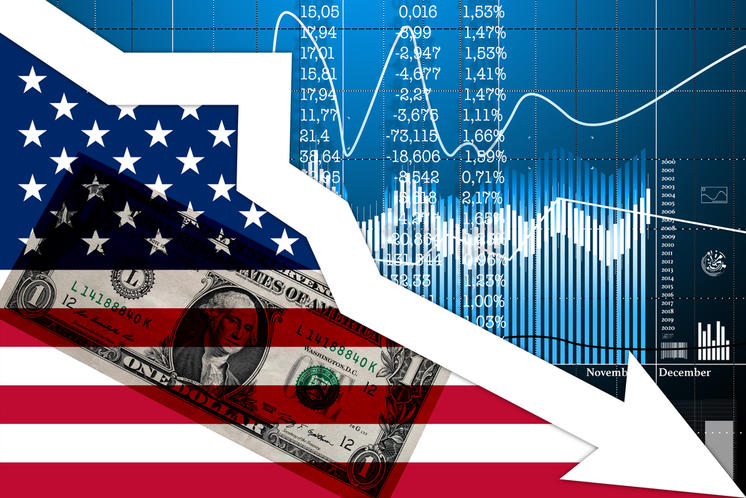Weekly Thoughts by Mirabaud Securities - 7 June 2019



The reaction to the news that the DoJ is considering an anti-trust investigation into Google parent Alphabet and an FTC probe of Facebook has been dramatic and justifiable in tech shares, with the Nasdaq 100 down hard this week. Nevertheless, the week (Thursday evening) ended with a gain between 1.5 and 3% for the main American indices, which contrasts with the sharp drop in May. In Europe, a rebound also occurred (Sweden being the only country to finish in the red). In Asia, while Japan rebounded slightly (in yen), Chinese indices were once again weak as the Shanghai composite lost more than 13% since its highs last April. The sanction is even more violent for the Shenzhen composite, which has lost nearly 18% since May as well.

The Dollar index tumbled to 3-week lows on Wednesday - down 4 days in a row - erasing all gains since the May FOMC meeting. Interesting to notice that the dollar was weak against every G10 members. The New Zealand dollar, the Swiss Franc and the Japanese yen were the biggest gainer (vs. dollars). In emerging markets (still vs. dollars), the Brazilian Real and the Chilean Peso were the biggest gainer. We saw some significant decreases on the Mexican Peso (after the new tensions with Washington), the South African rand and the Argentinian Peso.

In April 2018 we wrote a study that had made a lot of noise and stated that health was no longer reserved for pharmaceutical companies. Large technology groups were indeed on the verge of taking very large market shares. Here we are today.
Google AI researchers working with North-western Medicine created an AI model capable of detecting lung cancer from screening tests better than human radiologists with an average of eight years’ experience. When analysing a single CT scan, the model detected cancer 5% more often on average than a group of six human experts and was 11% more likely to reduce false positives. Humans and AI achieved similar results when radiologists were able to view prior CT scans. When it came to predicting the risk of cancer two years after a screening, the model was able to find cancer 9.5% more often compared to estimated radiologists performance laid out in the National Lung Screening Test (NLST) study. Deep learning is also behind Google’s advances in diabetic retinopathy diagnosis through eye scans, as well as DeepMind’s AI that can recommend the proper line of treatment for 50 eye diseases with 94% accuracy.

As you know, in Europe there is a country that we have been praising for some time: Portugal. Not only for the beauty of its landscapes and the quality of its food, but above all for its economic model, which continues to show convincing signs. Portuguese bonds, which earned the region’s best returns this year, got a further boost in May as Fitch Ratings upgraded the nation’s credit outlook to positive just months after S&P Global Ratings raised its ranking. While that helped push yields to a record low, Portugal remains the “main positive bet” among peripheral euro-area markets. Portugal’s government debt returned more than 3% so far this year, according to the Bloomberg Barclays Global Aggregate Index, beating Spanish and Italian debt, which delivered a 2.7% gain and a 0.4% loss, respectively. A nine-month rally in Portuguese 10-year bonds saw yields tumble more than 110 basis points, touching a record low of 0.688% on Wednesday. The spread to German equivalents was about 100 basis points, the narrowest since 2010.

Just before midnight on Friday, at the close of what was a hectic month for markets, WSJ dropped a bombshell of a story: The paper reported that the DoJ has opened an anti-trust investigation of Alphabet Inc., which could "present a major new layer of regulatory scrutiny for the search giant, according to people familiar with the matter." The report was sourced to "people familiar with the matter," but was swiftly corroborated by the New York Times, Bloomberg and others.
For months now, the FTC has appeared to be gearing up for a showdown with big tech. The agency - which shares anti-trust authority with the DoJ - has created a new commission that could help undo big-tech tie-ups like Facebook's acquisition of Instagram, and hired lawyers who have advanced new anti-monopoly theories that would help justify the breakup of companies like Amazon. But as it turns out, the Trump administration's first salvo against big tech didn't come from the FTC; instead, this responsibility has been delegated to the DoJ, which has reportedly been tasked with supervising the investigation into Google.
May review / Pharma, the revolution is underway / FANGs under tension / Gold, finally? / Beige book / ECB meeting
Please feel free to ask for more information if interested.
“Hard and Soft Brexit” (Opportunities & Threats) is on the cliff this week after the Brexit was postponed to 31 October. There is still a risk, however, that the House of Commons will approve the withdrawal agreement before May 22nd.
SWOT stands for Strengths, Weaknesses, Opportunities and Threats, the French equivalent of FFOM analysis (Forces, Faiblesses, Opportunités et Menaces). While SWOT analysis can be used to develop a company's marketing strategy and evaluate the success of a project (by studying data sets such as company's strengths and weaknesses, but also competition or potential markets), I decided several years ago to adapt it as a way to analyse financial markets. SWOT analysis allows a general development of markets by crossing two types of data: internal and external. The internal information taken into account will be the strengths and weaknesses of the market. The external data will focus on threats and opportunities in the vicinity. Finally, and most interestingly, there is a table that will evolve according to current events, which will allow it to reflect the underlying trend in the financial markets on a weekly basis.
This publication is prepared by Mirabaud. It is not intended to be distributed, disseminated, published or used in any jurisdiction where such distribution, dissemination, publication or use would be prohibited. It is not intended for people or entities to whom it would be illegal to send such publication.
Read more
Author
Continue to
